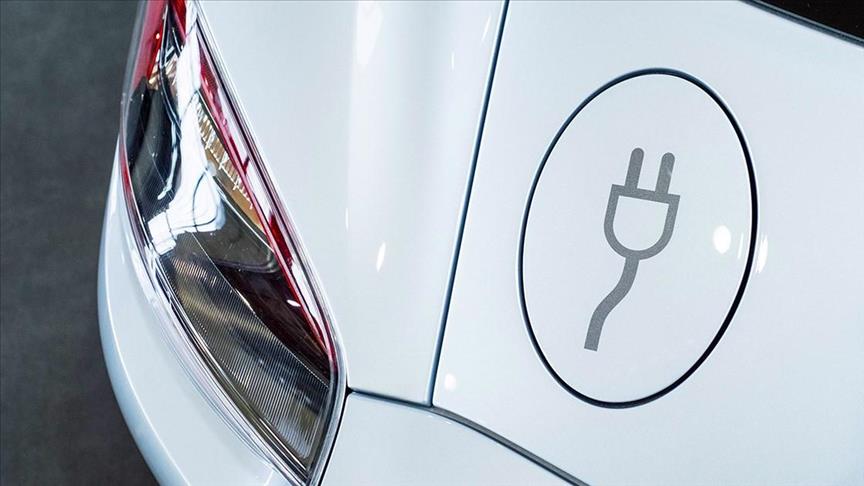Izmir-based Turkish technology start-up, NiCAT Battery Technologies, will start nickel base cathode production for the manufacture of efficient lithium-ion batteries in Turkey for both domestic use and for future worldwide exports.
The start-up, composed of researchers from the Izmir Institute of Technology (IYTE), aims to contribute to the local production of batteries for Turkey's first domestic electric vehicle (EV), which will be produced by Turkey’s Automobile Joint Venture Group (TOGG).
In June 2018, five industrial giants: the Anadolu Group, BMC, Kok Group, Turkcell, and Zorlu Holding as well as an umbrella organization, the Union of Chambers and Commodity Exchanges of Turkey, joined hands to create TOGG.
Can Attal, a business development specialist and co-founder of NiCAT Battery Technologies, told Anadolu Agency that the company wants to play a part in new battery technologies, which he said are considered the “oil of the new age.”
The company’s product, which began its inception in Turkey's technopark in Izmir, the country's first research and development (R&D) and business center in the country’s Aegean region, can be used in all types of rechargeable batteries.
The nickel base cathode alloy is used for lithium-ion batteries and in several industries including electric passenger and construction vehicles, shipping and domestic energy storage.
"This is the most important battery type that our product will be used for. Nickel base cathode production is projected to become unrivaled and widespread in electrical vehicles," Attal explained.
This start-up will be the first part of the chain as a cathode supplier for the production of lithium-ion in Turkey.
Currently, Attal said that ASPILSAN, the sole battery pack and Ni-Cd aircraft battery manufacturer in Turkey, has recently laid the foundation for a lithium-ion production plant that will use similar cathode technology as NiCAT, which could in effect pave the way for cooperation between ASPILSAN and NiCAT.
ASPILSAN aims to meet the demand for rechargeable nickel-cadmium batteries of the Turkish Armed Forces.
Technology improvements in recent years have seen the application of ASPILSAN’s batteries extend to over 100 different products to satisfy the demands of civilian and military portable telecommunication devices, weapon systems, electronic/optronic equipment, and complete batteries for aircraft and helicopters.
Furthermore, Attal said that US-based firm ZincFive, the biggest producer of new generation zinc batteries in the world, will soon start to test their product, and if successful, NiCAT will start its first exports.
NiCAT is also targeting exports to other leader lithium-ion battery producing companies such as Samsung SDI and LG Chem.
Attal explained that Turkey’s first domestically-produced EV is likely to use high nickel base lithium-ion batteries, which are the batteries of choice in new generation EVs.
As range and pricing are two of the most important elements in EVs, battery capacity is crucial given that one-third of the cost of an EV is from its battery pack, according to Attal.
"The most important product in the battery is the cathode material, which affects the battery’s performance. Therefore, our product has an important place in the experience of the end-user. It will only be possible to produce high-range and low-cost electric vehicles through improvements in cathode materials and in that aspect we are ready to play a part in Turkey's indigenous car as a local technology firm," he explained.
He added that as NiCAT is a producer of an intermediate product, it cannot directly supply TOGG, but can supply the battery-producing company.
- Turkey’s geographical advantage in this industry
Turkey has already made inroads in this industry with the DMA and Altinay Robotics firms that operate in the "battery pack" system. Now with ASPILSAN's factory coming online, Attal said Turkey would be able to start cell production.
Meanwhile, Zorlu Holding CEO Omer Yungul announced in April the company’s investment in a new nickel-refining factory in Turkey's Aegean province of Manisa.
"With this investment, we will also be able to supply the raw material locally that we will need. If all these processes are finalized successfully, Turkey will be able to establish a battery production value chain to reach a point where it can produce a 100% domestic battery product,” Attal said.
Attal explained that only a few giant companies operate in this niche area including German multinational chemical company BASF and Belgium's multinational materials technology company Umicore. More local companies comprise Cosmo AM&T, Ningbo Shanshan, Tanaka Chemicals from South Korea, China and Japan.
Attal said that Turkey is well placed geographically to supply cell producers in Korea and China and is a strong contender as an alternative supplier to companies that want to break into markets in Europe and the Middle East and to those that want to pull out of the Chinese market amid the trade war.
By Ebru Sengul Cevrioglu
Anadolu Agency
energy@aa.com.tr


